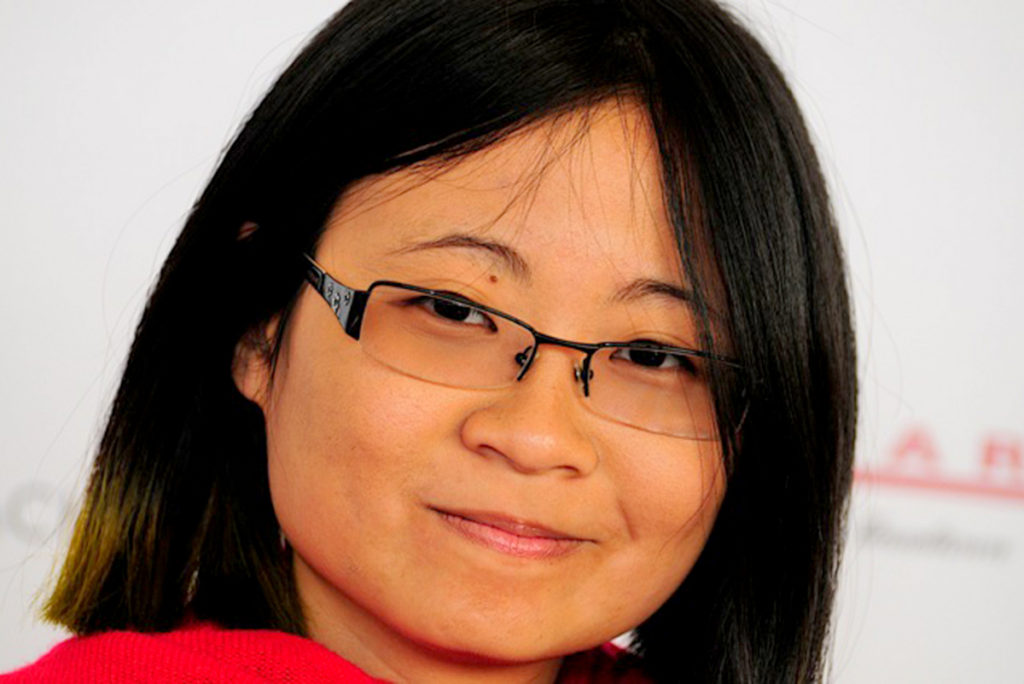
Vicki Lau is a rare combination of talent; entrepreneur, bodybuilder, artist, technologist, financial strategist, and intense-thinker. But, above all Your Creative Content Collaborator of Choice. She gave a TEDx talk on VFX/VR at Napa Valley, CA in 2016. She was a keynote speaker at Elliott Masie’s Learning 2018 conference with Former First Lady Laura Bush, and Leslie Odom, Jr. (Hamilton star). Vicki Lau opens up on her work and career…
I was a shy and quiet kid when I was younger. As a result of my reserved nature, I never really had any friends. When I was in an all-girls’ school, I was picked on, a lot; from having my backpack stolen and hidden away, to being forced to eat pencil shavings and being the subject of vicious rumors. My life took a turn at the age of 14 when I was gifted a camcorder; it was then I realized that I was able to use this medium as a means of self-expression. When it came to my work, I was never shy about expressing myself so, gradually, my passion for filmmaking and video-editing grew into visual effects (VFX).
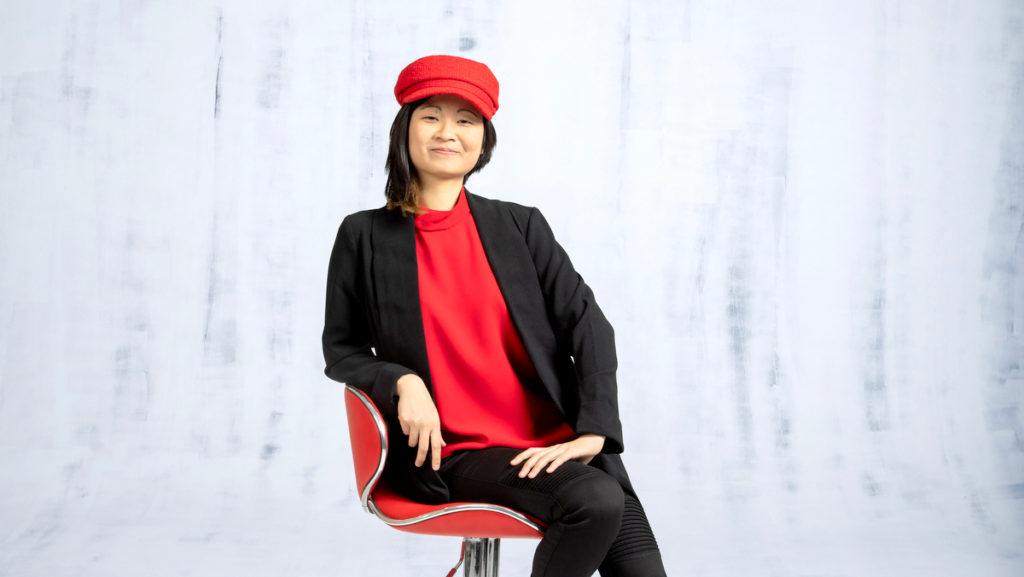
Today, I still continue my VFX (visual effects) practice as a means for self-expression. VR (virtual reality) development is also another creative outlet I use to execute and bring my ideas and visions to life. In addition, I teach, and share my VFX/VR experiences, and practices with the masses on global platforms and conferences as an advocate of democratizing elusive Hollywood insights for everyone. In short, I make movie magic work.
a. Udemy Course: VFX Compositing with After Effects: The Complete Edition
indieactivity : Did you study VFX?
Vicki Lau : Yes, I studied VFX at Singapore Polytechnic and then at the Savannah College of Art & Design – graduating both with distinction and honors/ As well as a bunch of achievement awards! As for how I came to conclude that I wanted to “become a VFX artist or specialist” well, to be frank, there wasn’t such an epiphany for me. Since it all began when I started using videos to express my identity and self… I can clearly state that there was no “Aha!” moment that made me decide to consciously turn this into a career path. It just happened that video turned out to be my means of self-expression so it was a natural process of becoming a VFX artist over time, without conscious effort. In other words, my career path was intrinsically motivated and not because of one monumental moment of external motivation. I find that the VFX artists I meet in the industry who only became VFX artists because they “liked watching sci-fi movies” when they were younger soon get faced with the reality that as a VFX person… you really don’t have the time to watch all those movies. It’s just the truth.
b. Udemy Course: VFX Compositing with Nuke: The Complete 2D Edition
indieactivity : What tools do you use?
Vicki Lau : When it comes to VFX and VR, I use – in no particular order – After Effects, Nuke, Unity and Unreal Engine, for the most part. These tools have generally been in the industry for a while now. Again, it’s all about how you use these tools rather than what tools they are. On that note, I do teach After Effects and Nuke online, so if you would like to learn alongside me, feel free to browse the Udemy links (a-b) above and below. 😊
c. Udemy Course: VFX Compositing with Nuke: Invisible Visual Effects
indieactivity : You are an experienced VFX/VR artist, how much work: creative, energy or focus do you put into your work?
Vicki Lau : Any creative endeavor generally requires a lot of effort and energy (and also patience). Actually, I would even go as far as to say, anything worth doing generally requires a lot of effort and energy – whether that’d be bodybuilding, building a home, writing a novel, scientific research or what not. It would be hard to quantify, honestly. 😊
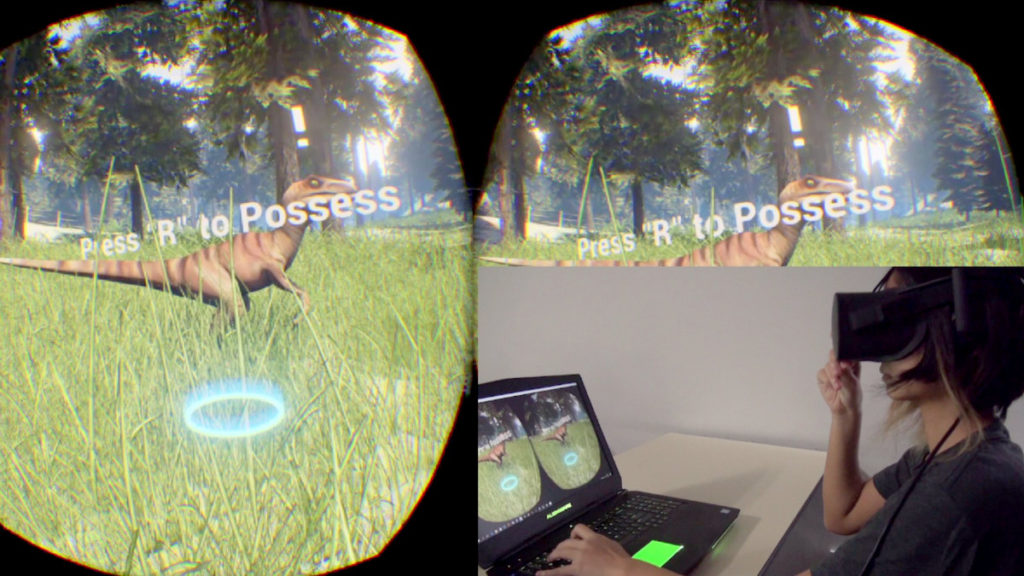
indieactivity : Do you always have to be on set of a production?
Vicki Lau : As a VFX or VR specialist? Not necessarily, no. Unless I was the supervisor for the production, realistically most VFX and VR artists don’t get to be on the set of productions nor do they need to be.
indieactivity : You have worked on commercials, shows, and film, how has each show impacted your work and career?
Vicki Lau : It doesn’t really impact my work. Each project is very individualized and unique in its own right, so I simply adapt my style or approach to suit that project’s needs and demands.
As for my career, the more work I have collectively is simply more proof in the pudding. So, I suppose you could say that the more commercials, shows and films I have worked on, the more commercials, shows and films I get to work on as well. Ultimately, I find that my career encompasses more than just my VFX and VR portfolio.
indieactivity : How does the work you do on one project, compare to another?
Vicki Lau : It’s hard to compare when working on VFX and VR projects – it really depends on the production. I personally do not like comparing projects either as it serves no purpose. I suppose you could say that the type of shots and work done per project will always be different but the quality I deliver is always consistent regardless of the production’s style and pacing.
indieactivity : Let’s take a project (be kind to give us the name and/or type of the project) you’ve done, how did you prepare for such: the story, the tools, the deadlines, the process, crew and the demands of the project?
Vicki Lau : Ok, let’s talk about a VR project of mine – Create VR – which was released via limited distribution on Oculus Gear VR and Rift in February and April 2018. I prepared for it like any typical project.
In short, I had a VR startup (Seyenapse) where my business with 18 collaborators from 5 time zones, developed and launched this VR game on the Oculus Store, within 7 months. To me, it was simply another project to be created and executed.
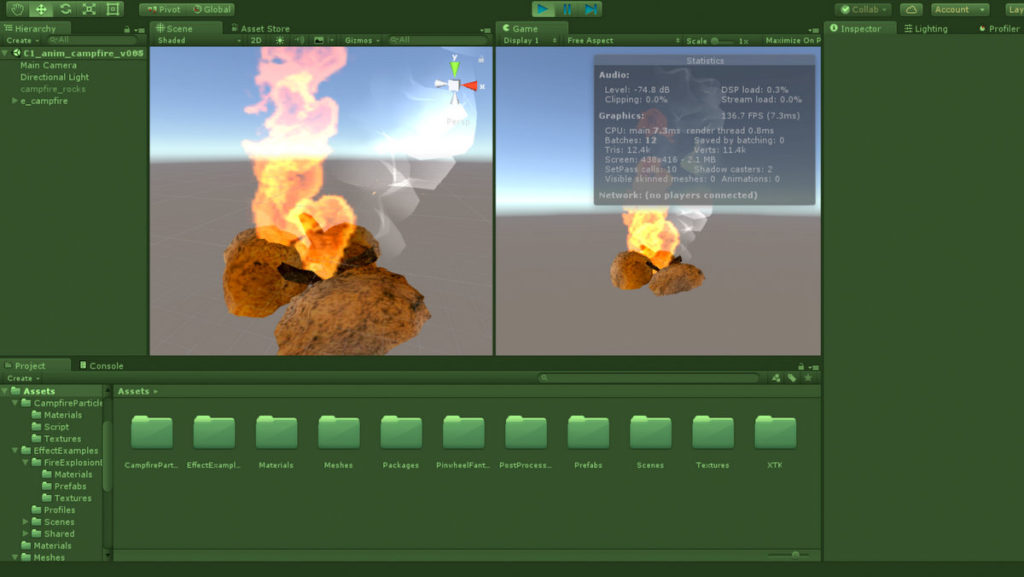
In the end, we had to close the startup in 2018 mainly due to a lack of market demand but that failure simply led me to become a better artist and leader for future projects. As for dealing with such a failure, any business should be dealt with objectively and clinically. If it’s not working out, you don’t mull over it – you end it and then move on.
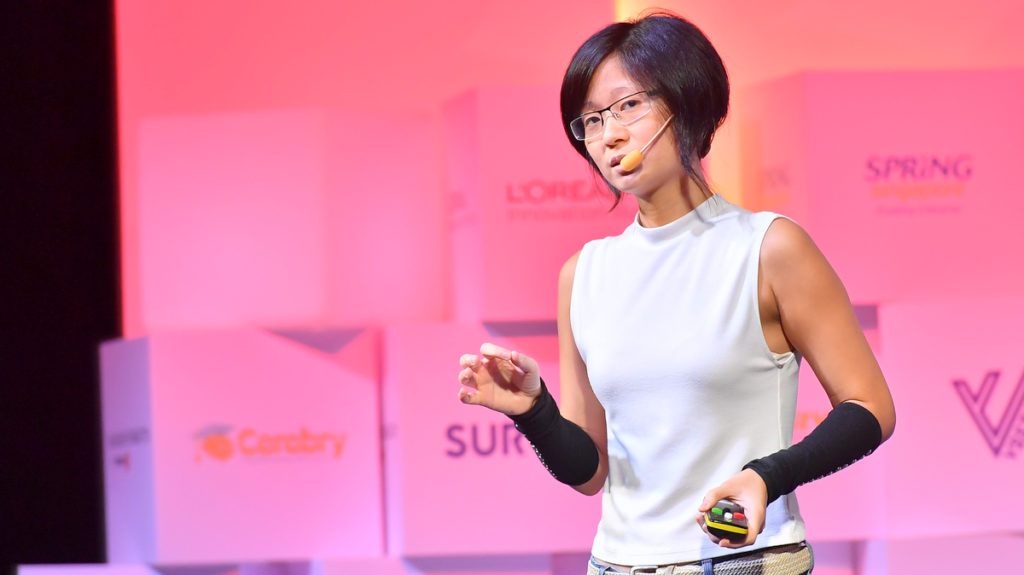
Regardless, the prospect of executing and seeing through a new project or creative endeavor will always be exciting to me.
indieactivity : When and how does a filmmaker need to create VFX/VR? How do you make this decision from a script during a production?
Vicki Lau : Again, it depends on the story being told. As for how these decisions are made from a script, this also depends on the director and his or her style of filmmaking. Sometimes, you’ll have a director that loves a lot of digital stuff and other times, you’ll get the occasional director that is tactile and loves to work with as much real-world elements as possible. A discussion would be necessary to determine the kind of director you are dealing with as well as what the film’s vision is.
indieactivity : What is the typical period/duration for which you work on a production set?
Vicki Lau : It depends on the production. If I were working on set as a VFX supervisor, then I would be on set for as long as I was needed for any scheduled VFX shoots in the call sheets. I won’t be on set if I am not needed on set.
indieactivity : Explain one creative choice you took on a typical VFX/VR project?
Vicki Lau : There are way too many creative decisions I’ve made in all of my projects so it’s hard to pick one. However, I will pick on the creative decision that I made in 2016 in the setting up of my business infrastructure for that particular VR project.
Given the diversity of our employees and collaborators, the company (Seyenapse) was essentially set up with a 100% remote working infrastructure – hence, everything from content to development and even proprietary information and IP was controlled and managed virtually. In fact, the entirety of the work was done successfully without any of us having to meet in person, surprisingly (even if some of us were in the same location).
With myself at the helms of this unique infrastructure, none of my team members missed their deadlines and our game Create VR was successfully developed and launched on the Oculus Store, within 7 months.
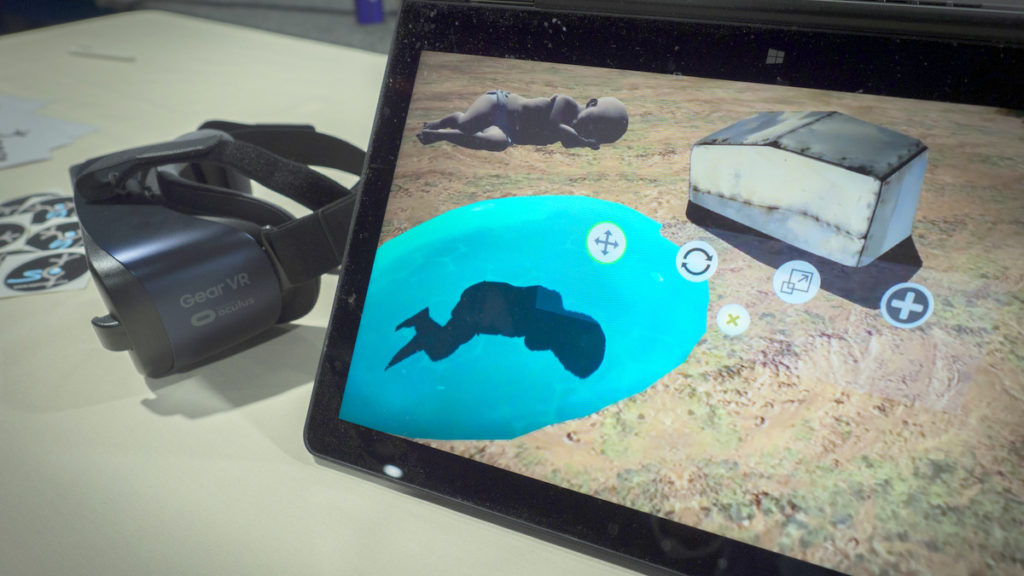
So, if let’s say… a pandemic strikes and people are forced out of their work… technically, if my startup were still around today, the business infrastructure and systems would have already been in place in order to ensure that we continue to function and run independently and unaffected by the real world – that is of course, if I were to bypass the general employee concerns and fears arising from a global crisis.
indieactivity : Say you compare and contrast VFX with Physical Effects for a project, when do you use both, and when do you use either?
Vicki Lau : Depends on the production. It’s always better to use physical effects than digital VFX because nothing can really beat the physics and forces present in the real world. The preference is always going to be for physical effects unless whatever you are currently doing on set cannot be feasibly, objectively or safely replicated on set; that’s when you would use digital visual effects to enhance your shots. Do note however that regardless of the production’s choice of digital or physical effects, all this has to already have been planned out during pre-production. A good producer would ensure that that is the case.
indieactivity : Describe a memorable scene you worked on? Breakdown your process on this scene?
Vicki Lau : The most memorable and probably time-consuming scene I worked on was most likely the rooftop scene in Season 4 of The Walking Dead.
To clarify, I did not do this shot entirely by myself. I was part of a small team of artists that handled the shot but got tasked what was probably the most time-consuming task in VFX – rotoscoping (a process that usually involves the frame-by-frame sketching and outlining of elements or characters in a shot).
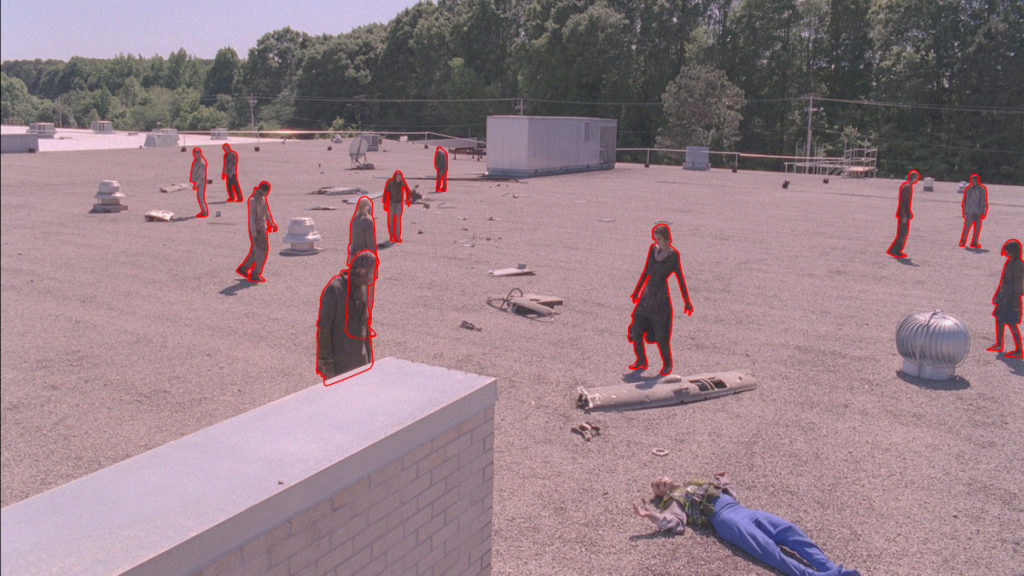
It was by far, the most memorable, because of the significance it plays in the scene and the show, as well as how long it took for me to rotoscope them zombie actors, haha. Also, it doesn’t hurt that I am a fan of the show itself and that The Walking Dead was actually one of my first major visual effects projects (and break) in the industry.
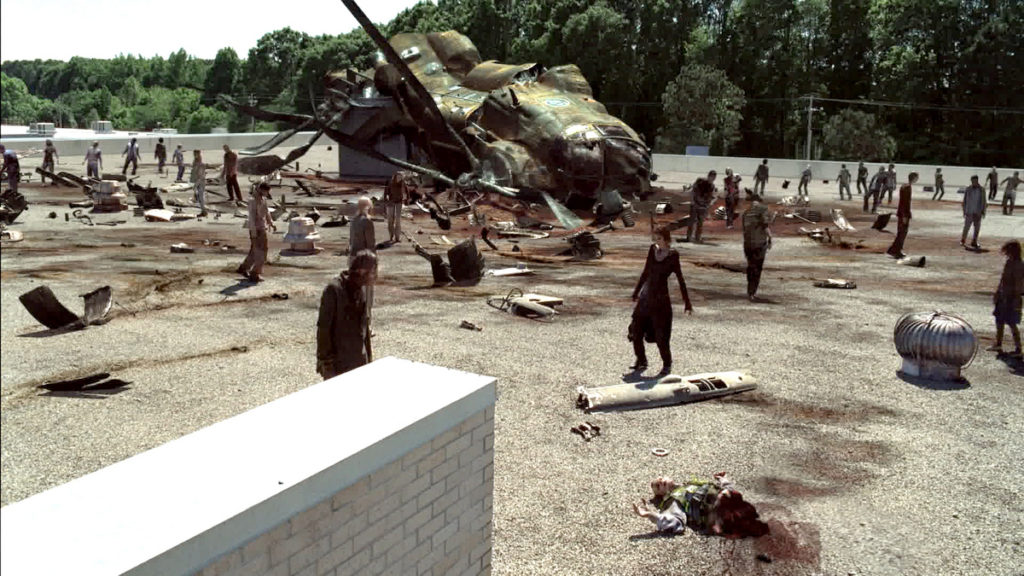
indieactivity : What do you want most from a director?
Vicki Lau : When looking for directors, I like working with a director who knows exactly what he or she wants and has a very distinct style that complements the story to be told. In other words, I would pick the best director for the job in terms of the story to be told. You’ll find that I tend to place a stronger emphasis on creating the best possible product rather than whether I like or dislike a person or not (though relationship dynamics are still important, of course). It is all about the mission – and in filmmaking, the mission is to tell and execute the story as best as possible.
indieactivity : Who/where or on what project do you long to work?
Vicki Lau : I like working for my own projects, haha. I don’t really have any particular project of others that I long to work for. To me, my own projects are what I really long to – and do currently – work for. I found that whenever I work for others – as a VFX or VR artist, not as a producer that is – I am unable to be my True self and am not fully capitalized by the team or production company that hired me. I know I bring a LOT of skills and insight to the table but most of these studios only want to utilize me for my VFX or other sort of skills. Well, I guess it goes without saying – they’ll never tap into my full potential as a creative and a leader.
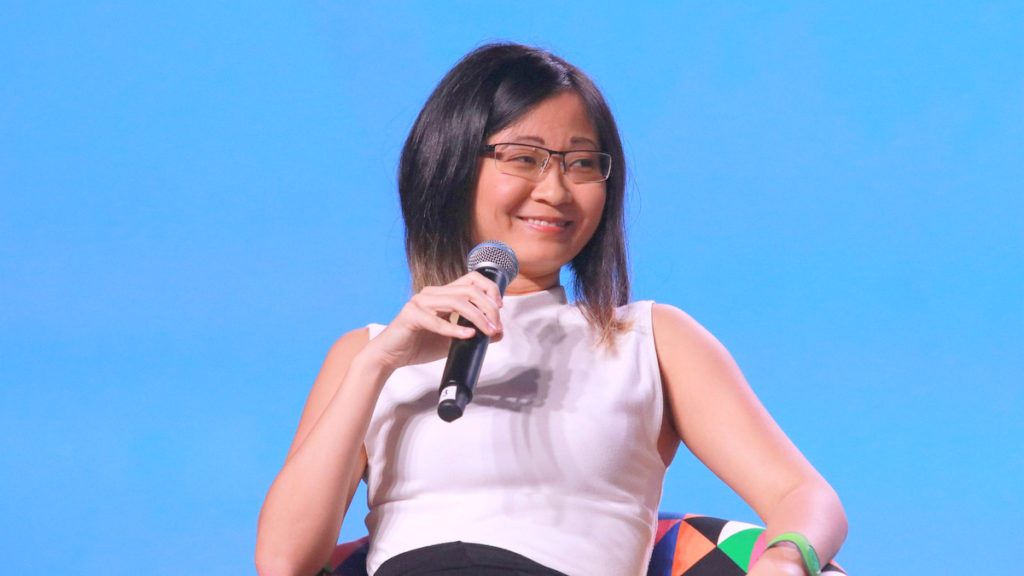
Of course, I’ll make a consensus if I’m being pitched a great script or project – but that person would have to let me take the reins of leading and producing it if they ever want something great to come out of our collaboration. Just ask my business partners, acquaintances and collaborators – they’ll probably have more accurate things to say about me rather than my employers.
indieactivity : Why?
Vicki Lau : Well, call it that relentless entrepreneurial spirit or that extreme inner creative aggression within me but I find that I am most useful to teams whenever I have a leading role in them, rather than be forced to sit by the wayside and watch others (usually but not all the time, haha) fail in inspiring others to follow their lead. So… seriously! If anyone reading this is serious about collaborating with me – know that I’m the Most useful when I have autonomy and get to call some of the shots. 😉
indieactivity : What advice would you give VFX/VR artists who would read this interview?
Vicki Lau : Love what you do and work really hard.
indieactivity : Briefly write about your career?
Vicki Lau : It’s an old story – I started young and came from another country (Singapore has about 5.5 million people or so) to the United States with no friends, no industry connections and no relatives. Within a short span of time, I had risen to become one of the prominent figures in VFX and VR when it comes to the creative aspects of things. To date, I’ve worked on over 40+ projects and productions at studios big and small, and with independent filmmakers.
I have taught children, teens, adults and people with Autism visual effects, and also organized and conducted my own pro bono workshops. I had founded a startup, closed that startup and had been invited to speak at various events and conferences in and outside of my line of expertise.
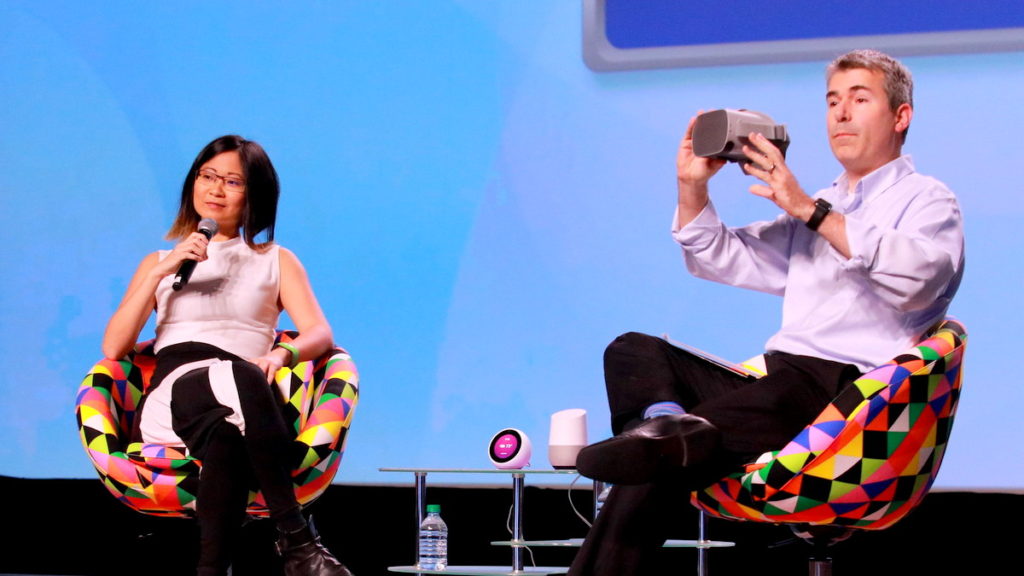
Today, I still give talks on exploring VFX & artistic careers (especially to women and people outside of the United States) and teach over 48,000 students from 177 countries Nuke and After Effects compositing, rotoscoping, & career tips with my aim to democratize the knowledge and insights from within Hollywood VFX studios themselves to the global masses. And yes, I still do VFX. 😉
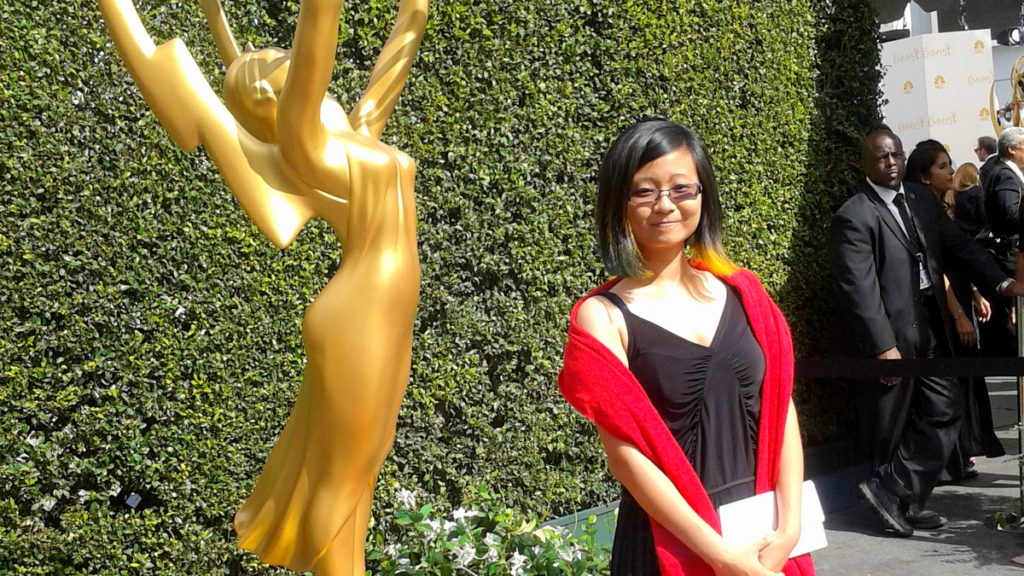
Overall, I would say my career is still in its infancy – and I only say that because I have so much more in store and so much more to offer outside of VFX and VR. If anyone would like to find out more or just reach out to collaborate, I am very open to hearing from any of you (provided you have a proper plan and budget in mind! D):
You may also pick up some of my VFX tricks for yourself by checking out the Udemy links above and below:
d. Udemy Course: VFX Production On-Set: Becoming a Visual Effects Supervisor
e. Udemy Course: VFX Rotoscoping 101 with After Effects and Mocha
Just be sure to bring an open-mind & positive attitude!
Tell us what you think of the interview with Vicki Lau What do you think of it? What ideas did you get? Do you have any suggestions? Or did it help you? Lets have your comments below and/or on Facebook or Instagram! Or join me on Twitter.
Vicki Lau Socials
Website
IMDb
Twitter
Instagram
YouTube
MORE STORIES FOR YOU
Richard Green Documentary, ‘I Know Catherine, The Log Lady’: Premiere in NYC, LA May 9th
Lynchian Doc I Know Catherine, The Log Lady Makes Hollywood Premiere 4/17, Rollout to Follow
In Camera by Naqqash Khlalid Launch on VOD April 29
Naqqash Khlalid’s Directs Nabhan Rizwan. In Camera stars an EE BAFTA Rising Star Award Nominee.
2025 Philip K. Dick Sci-Fi Film Festival Award Winners Announced
Vanessa Ly’s Memories of the Future Awarded Best PKD Feature
Dreaming of You by Jack McCafferty Debuts VOD & DVD for April Release
Freestyle Acquires “Dreaming of You” for April 15th Release
Hello Stranger by Paul Raschid set for London Games Festival & BIFFF
The film Is set for an April 10th Premiere at The Genesis Cinema in London (LGF) and BIFFF
Daydreamers Official Trailer by Timothy Linh Bui: Released by Dark Star Pictures
Daydreamers Vietnamese Vampire Thriller – May 2nd release









